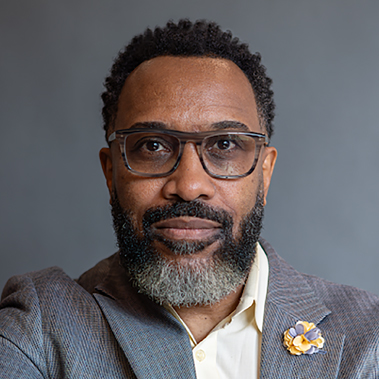As the world watches the Olympics and the Paralympics, it’s a perfect time to draw parallels between the world of sports and the world of business. Much like athletes striving for excellence, business leaders and their teams need guidance to reach their full potential. This is where executive coaching comes into play, standing distinct from training and consulting. Understanding these differences can help you make the best choice for your business growth and success.
Training: Filling the Knowledge Gap
Training is about providing information to fill a specific knowledge gap. For instance, if your team needs to understand a new software tool or learn about industry regulations, training can be beneficial. However, in the information age, traditional training methods have become somewhat outdated. Many prefer to turn to YouTube or Google for quick, accessible knowledge.
Moreover, studies, such as those based on the Ebbinghaus Forgetting Curve, demonstrate that traditional training may not lead to lasting behavior change. The Forgetting Curve shows that within an hour, learners forget up to 50% of newly acquired information, and within 24 hours, they may forget up to 70%. This rapid decline in memory retention means that without reinforcement, most training is ineffective in the long term.
Training often aims to impact behavior, but it doesn’t guarantee skill acquisition. For example, attending an effective communication training doesn’t ensure that one becomes an effective communicator, just like knowing how to throw a javelin doesn’t make you an Olympian. Training brings the information but not necessarily the ability to apply it effectively.
Consulting: Implementing Proven Systems
Consulting involves bringing in an expert to provide a proven system or process for achieving a desired outcome. Consultants can help fast-track a process by offering detailed plans, strategies, and best practices. However, a significant challenge with consulting is that it often employs a “one-size-fits-all” approach, which can lead to failure.
Many consulting engagements fail because the consultant’s standardized approach doesn’t align with the specific needs of the business. When consultants assume that a strategy that worked for one company will work for another without customization, they risk creating gaps in implementation and outcomes. Studies have shown that a lack of tailored solutions is a common reason for consulting failures, as this approach doesn’t account for the unique circumstances and culture of each organization.
In our Olympic metaphor, consultants would be the ones setting up the best equipment and designing optimal training regimes, but they don’t help the athlete develop the skill in real-time.
Coaching: Real-Time Skill Development
Coaching borrows its essence from the sports world for a reason. Coaches help individuals and teams gain skills through live, hands-on guidance. This approach is about being present in the moment, providing real-time feedback and adjustments, which makes it the most powerful and fastest way to develop skills and knowledge.
Coaching is founded on the understanding that the client and team are strong, capable, and wise. They possess the potential to succeed but may struggle to let their inner Olympian emerge. Coaching is a transformative process where the coach helps the individual or team understand where they are, where they want to go, and the actions needed to bridge that gap. The coach also provides accountability to ensure that progress is maintained.
Moreover, coaching is a continuous process of improvement. With every successful change, a new gap to explore often emerges, as coaching takes into account the ever-changing context or system in which the individual and team operate. This adaptability is what makes coaching so powerful in helping clients achieve lasting success.
The power of coaching lies in its immediacy. Coaches are there, live, adjusting and correcting, ensuring there are no gaps in development. This ongoing, hands-on approach is why coaching can be a lengthy or ever-present service. Just as professional athletes receive daily coaching, executive coaching involves frequent interaction to continuously hone skills and strategies.
The Effectiveness and ROI of Executive Coaching
Executive coaching is not just about managing problem behaviors but about developing skills and taking performance from good to great, much like athletes striving for Olympic gold. According to data from the International Coaching Federation (ICF), executive coaching leads to a **70% increase in individual performance** and a **50% improvement in team performance**. Moreover, organizations that combine coaching with training experience an **88% increase in productivity**, compared to just 22% with training alone. The overall return on investment (ROI) for executive coaching has been measured at a staggering **788%**, making it one of the most impactful investments a company can make.
Individual vs. Team Coaching
While individual executive coaching focuses on personal development, leadership skills, and overcoming specific challenges, team coaching takes a broader approach. Team coaching is about aligning the team around shared goals, improving communication, and enhancing collaboration. It’s similar to how a coach works with both an individual athlete and the entire team to ensure everyone is working towards the same objectives.
Individual coaching helps leaders refine their decision-making processes, improve their emotional intelligence, and increase their overall effectiveness. In contrast, team coaching addresses group dynamics, helps teams move through stages of development, and ensures that all team members are contributing effectively to achieve the organization’s goals.
In both cases, coaching provides the hands-on, real-time support needed to implement lasting change and achieve measurable results.
What’s Next?
Ready to take your business to the next level?
Our executive coaching services are designed to help you and your team achieve excellence. Whether you’re looking for individual coaching to enhance leadership or team coaching to improve collaboration, we’re here to support your growth and success. Contact us today to learn more about how we can help you turn your business goals into gold medal achievements.
Written by Shawn Meredith













0 Comments